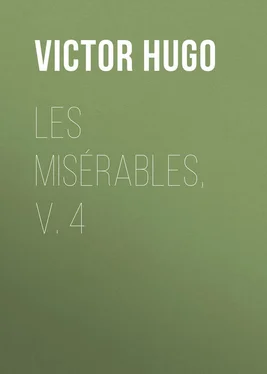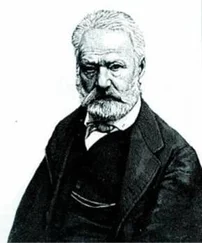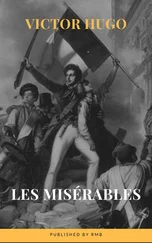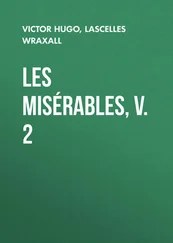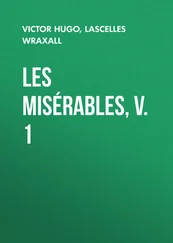Victor Hugo - Les Misérables, v. 4
Здесь есть возможность читать онлайн «Victor Hugo - Les Misérables, v. 4» — ознакомительный отрывок электронной книги совершенно бесплатно, а после прочтения отрывка купить полную версию. В некоторых случаях можно слушать аудио, скачать через торрент в формате fb2 и присутствует краткое содержание. Жанр: literature_19, foreign_antique, foreign_prose, на английском языке. Описание произведения, (предисловие) а так же отзывы посетителей доступны на портале библиотеки ЛибКат.
- Название:Les Misérables, v. 4
- Автор:
- Жанр:
- Год:неизвестен
- ISBN:нет данных
- Рейтинг книги:4 / 5. Голосов: 1
-
Избранное:Добавить в избранное
- Отзывы:
-
Ваша оценка:
- 80
- 1
- 2
- 3
- 4
- 5
Les Misérables, v. 4: краткое содержание, описание и аннотация
Предлагаем к чтению аннотацию, описание, краткое содержание или предисловие (зависит от того, что написал сам автор книги «Les Misérables, v. 4»). Если вы не нашли необходимую информацию о книге — напишите в комментариях, мы постараемся отыскать её.
Les Misérables, v. 4 — читать онлайн ознакомительный отрывок
Ниже представлен текст книги, разбитый по страницам. Система сохранения места последней прочитанной страницы, позволяет с удобством читать онлайн бесплатно книгу «Les Misérables, v. 4», без необходимости каждый раз заново искать на чём Вы остановились. Поставьте закладку, и сможете в любой момент перейти на страницу, на которой закончили чтение.
Интервал:
Закладка:
A deduction must be made in the charges which history brings against Louis Philippe, and they formed three different columns, each of which gives a different total, – one accusing royalty, the second the reign, and the third the king. Democratic right confiscated, progress made the second interest, the protests of the streets violently repressed, the military execution of insurrections, revolt made to run the gauntlet, the Rue Transnonain, the councils of war, the absorption of the real country in the legal country, and the government on joint account with three hundred thousand privileged persons – are the deeds of royalty: Belgium refused, Algeria too harshly conquered with more of barbarity than civilization, like India by the English, the breach of faith to Abd-el-Kader, Blaye, Deutz bought and Pritchard paid – are chargeable to the reign; while the policy which cares more for the family than the nation belongs to the king. As we see, when the deductions have been made, the charge against the king is reduced; but his great fault was that he was modest in the name of France. Whence comes this fault?
Louis Philippe was a king who was too much a father, and this incubation of a family which is intended to produce a dynasty is frightened at everything, and does not like to be disturbed. Hence arises excessive timidity, which is offensive to a nation which has July 14th in its civil traditions and Austerlitz in its military annals. However, when we abstract public duties, which should ever be first fulfilled, the family deserved Louis Philippe's profound tenderness for it. This domestic group was admirable, and combined virtue with talent. One of the daughters of Louis Philippe, Marie d'Orléans, placed the name of her race among artists as Charles d'Orléans had done among the poets, and she created from her soul a statue which she called Joan of Arc. Two of Louis Philippe's sons drew from Metternich this demagogic praise: "They are young men whose like can be found nowhere, and such princes as were never seen before." Here is the truth, without extenuating or setting down aught in malice, about Louis Philippe. It was his good fortune to be in 1830 the Prince Égalité, to bear within him the contradiction between the Restoration and the Revolution, to possess that alarming revolutionary side which becomes reassuring in the governor: and there was never a more complete adaptation of the man to the event, for one entered the other and the incarnation took place. Louis Philippe is 1830 made man, and he had also on his side that great designation to a throne, exile. He had been proscribed, wandering, and poor, and had lived by his own labor. In Switzerland, this heir to the richest princely domains of France was obliged to sell a horse, in order to eat; at Reichenau, he had given mathematical lessons while his sister Adelaide was embroidering and sewing. These souvenirs blended with a king rendered the bourgeoisie enthusiastic. With his own hands he had demolished the last iron cage at Mont St. Michel, erected by Louis XI. and employed by Louis XV. He was the companion of Dumouriez and the friend of Lafayette; he had belonged to the Jacobin Club, and Mirabeau had tapped him on the shoulder, and Danton said to him, "Young man." At the age of twenty-four in '93, when M. de Chartres, he had witnessed from an obscure gallery in the Convention, the trial of Louis XVI., so well named "that poor tyrant." The blind clairvoyance of the revolution breaking royalty in the king, and the king with royalty, while hardly observing the man in the fierce crushing of the idea; the vast storm of the Convention Tribune; Capet not knowing what to answer; the frightful and stupefied vacillation of this royal head before the raging blast; the relative innocence of all mixed up in this catastrophe, of those who condemned as well as of him who was condemned, – he, Louis Philippe, had looked at these things and contemplated these vertigos; he had seen centuries appear at the bar of the Convention; he had seen behind Louis XVI., that unfortunate and responsible victim, the real culprit, monarchy, emerging from the darkness, and he retained in his soul a respectful terror of this immense justice of the people which is almost as impersonal as the justice of God. The traces which the revolution left upon him were prodigious, and his memory was a living imprint of these great years, minute by minute. One day, in the presence of a witness whose statements we cannot doubt, he corrected from memory the entire letter A in the list of the Constituent Assembly.
Louis Philippe was an open-air king; during his reign the press was free, debates were free, conscience and speech were free. The Laws of September had a clear track. Though he knew the corrosive power of light upon privileges, he left his throne exposed to the light, and history will give him credit for this honorable behavior. Louis Philippe, like all historic men who have quitted the stage, is at the present day being tried by the human conscience, but this trial has not yet gone through its first stage. The hour when history speaks with its venerable and free accent has not yet arrived for him; the moment has not yet come for the final judgment. Even the stern and illustrious historian, Louis Blanc, has recently toned down his first verdict. Louis Philippe was elected by the two hundred and twenty-one deputies in 1830, that is to say, by a semi-Parliament and a semi-revolution; and, in any case, we cannot judge him here philosophically, without making some reservations in the name of the absolute democratic principle. In the eyes of the absolute, everything is usurpation which is outside of these two rights, – first, the right of man and in the next place the right of the people; but what we are able to say at present is, that in whatever way we may regard him, Louis Philippe, taken by himself, and looked at from the stand-point of human goodness, will remain, to employ the old language of old history, one of the best princes that ever sat on a throne. What has he against him? This throne; take the king away from Louis Philippe and the man remains. This man is good, at times so good as to be admirable. Often in the midst of the gravest cares, after a day's struggle, after the whole diplomacy of the Continent, he returned to his apartments at night; and then, though exhausted by fatigue and want of sleep, what did he? He would take up a list of sentences and spend the night in revising a criminal trial, considering that it was something to hold his own against Europe, but even greater to tear a culprit from the hands of the executioner. He obstinately resisted his keeper of the seals, and disputed the scaffold inch by inch with his attorney-generals, those "chatterers of the law," as he called them. At times piles of sentences covered his table, and he examined them all, and felt an agony at the thought of abandoning these wretched condemned heads. One day he said to the witness whom we just now quoted, "I gained seven of them last night." During the earlier years of his reign the penalty of death was, as it were, abolished, and the re-erection of the scaffold was a violence done to the king. As the Grève disappeared with the elder branch, a bourgeois Grève was established under the name of the Barrière St. Jacques, for "practical men" felt the necessity of a quasi-legitimate guillotine. This was one of the victories of Casimir Perier, who represented the narrow side of the bourgeoisie, over Louis Philippe, who represented the liberal side. The king annotated Beccaria with his own hand, and after the Fieschi machine he exclaimed, "What a pity that I was not wounded, for then I could have shown mercy!" Another time, alluding to the resistance offered by his ministers, he wrote with reference to a political culprit, who is one of the most illustrious men of the day, "His pardon is granted, and all that I have to do now is to obtain it." Louis Philippe was as gentle as Louis IX., and as good as Henri IV., and in our opinion, in history, where goodness is the rare pearl, to have been good is almost better than to have been great.
Читать дальшеИнтервал:
Закладка:
Похожие книги на «Les Misérables, v. 4»
Представляем Вашему вниманию похожие книги на «Les Misérables, v. 4» списком для выбора. Мы отобрали схожую по названию и смыслу литературу в надежде предоставить читателям больше вариантов отыскать новые, интересные, ещё непрочитанные произведения.
Обсуждение, отзывы о книге «Les Misérables, v. 4» и просто собственные мнения читателей. Оставьте ваши комментарии, напишите, что Вы думаете о произведении, его смысле или главных героях. Укажите что конкретно понравилось, а что нет, и почему Вы так считаете.
